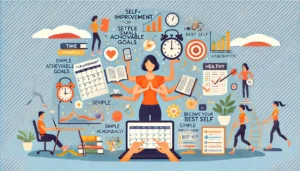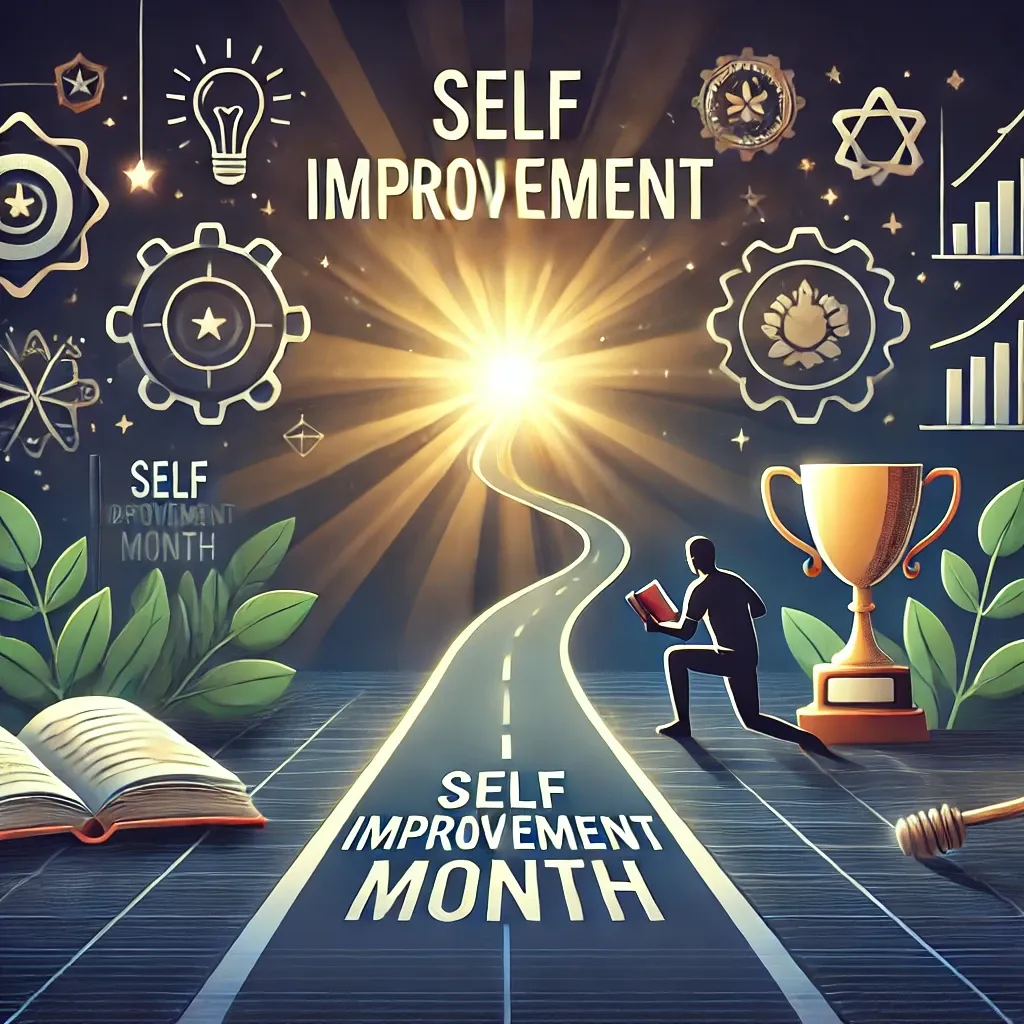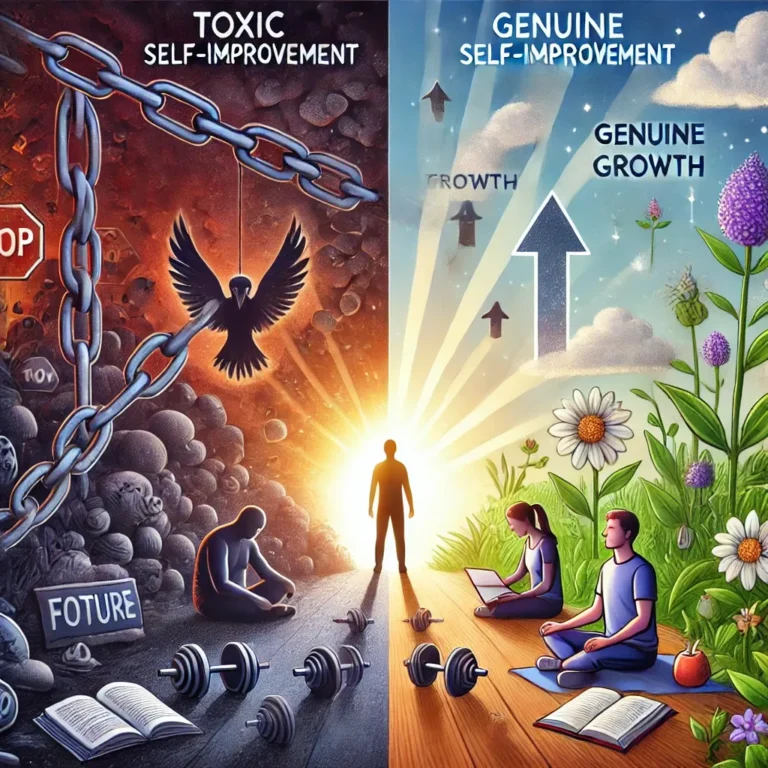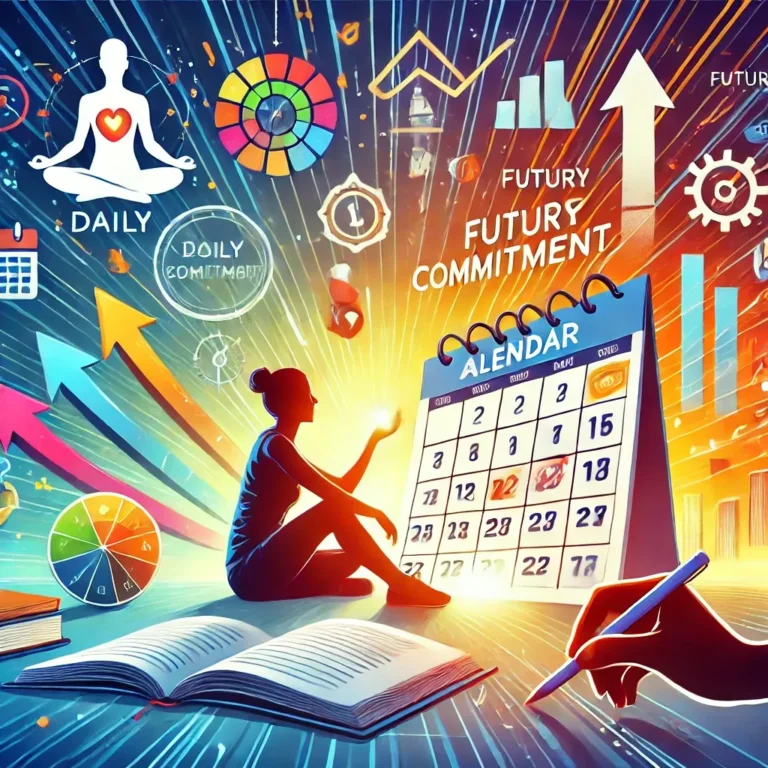Self-Improvement for Busy People: Simple Ways to Become Your Best Self
In today’s fast-paced world, finding time for self-improvement can seem like a distant dream. Between juggling work, family, and social obligations, it’s easy to feel like you barely have time to breathe, let alone work on becoming your best self. But here’s the good news: self-improvement doesn’t require hours of free time or massive life changes. In fact, small, simple tweaks to your daily routine can make a huge difference. Ready to dive in? Let’s explore practical ways to improve yourself, even with a jam-packed schedule.
Why Self-Improvement Matters, Especially When You’re Busy
When life is busy, self-care and personal growth are often the first things to be sacrificed. But the truth is, taking care of yourself helps you handle your hectic life with more energy, focus, and resilience. Think of self-improvement as an investment—by becoming a better version of yourself, you’ll improve your productivity and overall happiness, making your busy life easier to manage.
Start with Mindset: Small Changes, Big Results
The first step in self-improvement is a mindset shift. You don’t need hours of free time or the perfect circumstances to improve your life. Instead, adopt the philosophy of “progress over perfection.” Focus on small, consistent actions. These micro-habits will compound over time, leading to significant improvements without overwhelming you.
Set Clear, Attainable Goals
One key to self-improvement is having a clear sense of direction. Start by setting small, realistic goals. Break them into bite-sized chunks. For example, instead of saying, “I want to get fit,” try “I’ll do a 10-minute workout three times a week.” Clear goals help you stay on track without feeling overwhelmed, and every small win will build momentum for larger victories.
Maximize Your Morning Routine
You might think that mornings are already hectic, but here’s the secret: they’re the perfect time for self-improvement. The way you start your day sets the tone for everything that follows. Even if you have just 10 extra minutes, use that time wisely.
- Practice Gratitude: Take a few moments to reflect on what you’re thankful for. This small habit can shift your mindset and boost your mood.
- Set Daily Intentions: Instead of diving into the day’s chaos, set one or two clear goals for your day. It provides focus and clarity.
- Move Your Body: You don’t need a full workout—stretching or a brief walk can jumpstart your energy levels.
Incorporate Learning into Your Day
One of the easiest ways to grow is by learning something new every day. The best part? You don’t need hours of study time. Instead, take advantage of the “in-between” moments of your day:
- Listen to Podcasts: Whether you’re commuting or doing chores, podcasts are a great way to learn on the go.
- Read 10 Pages a Day: Break reading into small chunks. Just 10 pages a day can lead to finishing an entire book each month.
- Watch Educational Videos: If you’re scrolling on your phone, swap out cat videos for TED Talks or documentaries. It’s a quick way to learn without feeling like a chore.
Optimize Your Workday for Growth

Since you likely spend most of your day at work, why not use some of that time for self-improvement? Even small adjustments can lead to big results:
- Time Blocking: Allocate specific blocks of time for focused work. This will help you accomplish more in less time.
- Take Regular Breaks: Your brain needs time to recharge. Short, regular breaks will actually improve your productivity.
- Focus on High-Value Tasks: Prioritize the tasks that will have the biggest impact. Ask yourself, “What’s the one thing I can do today that will make everything else easier?”
Practice Mindfulness During Downtime
If you’re constantly rushing from one task to another, you might feel like there’s no time for mindfulness. But mindfulness doesn’t have to involve lengthy meditation sessions. You can practice mindfulness throughout your day with simple actions:
- Breathe Deeply: When you feel stressed, take five deep breaths. It calms your nervous system and brings you back to the present moment.
- Be Present: Focus on one task at a time, whether you’re working, eating, or spending time with loved ones.
- Mindful Walks: Even if it’s just around your office or house, walking with intention can clear your mind and help you reset.
Build Consistency Through Habit Stacking
Habit stacking is a powerful tool for busy people. The idea is to attach a new habit to an existing one, making it easier to adopt. For example:
- While Brewing Coffee: Practice gratitude or do some light stretching.
- During Lunch Break: Read a few pages of a self-help book or listen to a podcast.
- Brushing Your Teeth: Use this time to visualize your goals for the day.
By stacking new habits onto routines you already follow, you integrate self-improvement into your daily life without adding extra time.
Focus on Health: Small, Sustainable Choices
You don’t need to overhaul your diet or start running marathons to improve your health. Simple, sustainable changes are far more effective:
- Hydrate: Drink water consistently throughout the day. Staying hydrated keeps your energy levels up.
- Healthy Snacks: Swap chips or sweets for fruits, nuts, or yogurt. These small choices add up over time.
- Sleep Better: Prioritize your sleep by setting a consistent bedtime and creating a relaxing bedtime routine.
Embrace the Power of Saying ‘No’
One of the best self-improvement strategies is learning to say ‘no’ more often. Overcommitting leaves you overwhelmed, stressed, and unable to focus on what really matters. By saying no to unnecessary tasks, you’re saying yes to your personal growth.
Surround Yourself with Positive Influences
You are the average of the people you spend the most time with. If you surround yourself with positive, growth-oriented individuals, their energy will rub off on you. This doesn’t mean cutting ties with people, but rather, prioritizing time with those who lift you up and encourage self-improvement.
Track Your Progress and Celebrate Wins
Tracking progress keeps you motivated. Whether you’re aiming for fitness, learning, or productivity, small milestones matter. Celebrate these wins—it’s important to recognize how far you’ve come, even if the steps seem small.
Keep a Journal to Reflect and Plan
Journaling is a great way to track your self-improvement journey. You don’t need to write pages every day—a few sentences on what you learned, what went well, and what you could improve will suffice. This habit will help you stay mindful and intentional about your growth.
Find Joy in the Process, Not Just the Destination
Self-improvement isn’t just about achieving a goal—it’s about enjoying the process of becoming better. Shift your focus from results to the journey itself, and you’ll find it much easier to stay motivated.
Conclusion: Embrace Imperfection and Keep Going
In the end, self-improvement for busy people isn’t about radical change or having all the time in the world. It’s about making small, meaningful adjustments to your routine, mindset, and habits. The key is consistency over intensity. So, embrace the idea that even tiny actions can lead to big results. Keep it simple, stay patient, and you’ll be amazed at how much you can grow, even in the busiest of seasons.
FAQs
1. How do I find time for self-improvement when I’m already so busy?
Focus on small, incremental changes that can be incorporated into your daily routine. Use time between tasks or during mundane activities to work on self-improvement.
2. Can I improve myself without drastically changing my lifestyle?
Absolutely! Minor shifts, like practicing gratitude or adding a few minutes of movement into your day, can lead to significant improvements over time.
3. What’s the most important habit for busy people to develop?
Consistency. Developing small, consistent habits over time is key. Whether it’s exercising, reading, or learning, consistency will compound your efforts.
4. How can I track my self-improvement progress?
Journaling is a great way to reflect on your progress. You can also set specific, measurable goals and track them weekly or monthly.
5. Can mindfulness help with self-improvement?
Yes! Mindfulness keeps you present and focused, which reduces stress and increases productivity. Small mindful practices, like deep breathing or mindful walking, can make a big difference.






